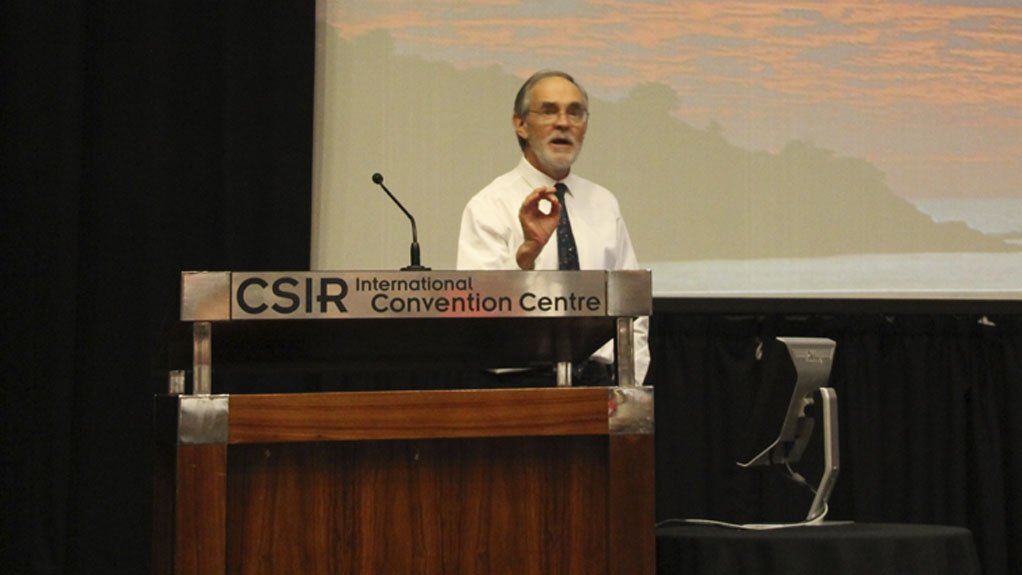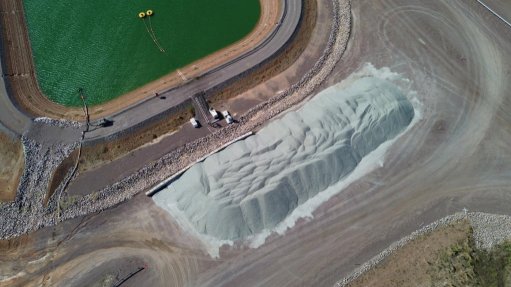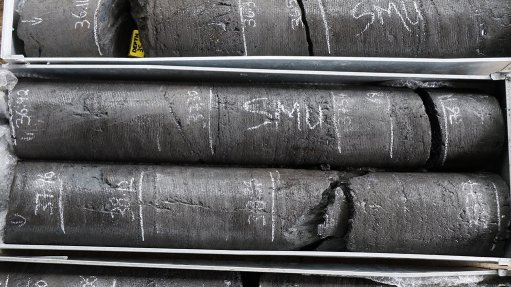Economist says Minerals Council better placed than DMPR to handle mining oversight
Optimum Investment Group economic adviser Dr Roelof Botha has called for South Africa’s Department of Mineral and Petroleum Resources (DMPR) to be scrapped, proposing instead that the Minerals Council South Africa take over the administration of the sector to boost investment and unlock untapped potential.
Botha, a recipient of the Finmedia Economist of the Year award in 2005 for the accuracy of his economic forecasts, highlighted during the 2025 BME Technical Summit, in Pretoria, on October 22, the structural challenges facing the mining industry.
While production volumes for iron-ore have improved since 2005, coal continues to underperform, reflecting a lack of new mining activity. He pointed out that the country hosted only about ten junior miners on the JSE, compared with the more than 700 junior miners that were listed on the ASX and the thousands listed on the TSX.
“Judge [Nicolaas Jacobus Tuchten] of the Gauteng Division High Court in South Africa concluded [in 2017] that the [then Department of Mineral Resources and Energy (DMRE)] was an irrational and incompetent organisation that was obstructing the very investment in mining that this country needs, and that it has made a case for its own substitution. That's what the judge said, not me. I do agree with him, of course,” Botha said.
The DMRE has since been split into the Department of Electricity and Energy and the DMPR.
Botha emphasised that a functional substitute exists in the form of the Minerals Council, which he believed would be better positioned to efficiently manage exploration permits, licences and record-keeping, enabling the sector to fully contribute to economic growth.
“So if that judge was correct, and there is a case to be made for a substitution, is there a substitute available? I think you are aware of the Minerals Council South Africa. Just imagine that the Minerals Council takes over the functional tasks of the DMRE. I can guarantee you, we'll have 50 junior miners within 12 months, if they can just get the system working again. It hasn't been working for quite a while,” he said.
Botha noted that other mineral commodities showed mixed performance. Average monthly sales for gold and iron-ore remained strong, manganese was steady, while chromium had underperformed in terms of sales value.
Examining value-added growth over the past 13 years, he observed that mining is one of four sectors with negative growth, a consequence of commodity price pressures and the lingering effects of a decade of State capture.
Botha said he participated in research estimating the cost of State capture at about R2.5-trillion in lost GDP, with eight-million to ten-million potential jobs never created.
Despite these setbacks, he said mining remained a profitable sector relative to the overall economy.
“Your gross operating surplus value added ratio for mining [is] slightly higher than the total for the economy as a whole. So you can obviously still make a bit of money in the sector, especially now that the gold price and the platinum price are doing what they're doing,” Botha said.
He pointed to a recovery in the sector’s contribution to gross value added in the second quarter, now higher than pre-pandemic levels, signalling potential growth.
Botha, nevertheless, stressed the importance of efficient administration for maintaining South Africa’s balance of payments. Without mining, he warned, the country could face significant trade deficits. He highlighted the strong prices of gold and platinum, which had driven the average monthly value of metallic minerals higher over a four-quarter period, and noted that mining remained a critical driver of trade surpluses.
“The gold price [is high]. It's just a pity that our gold is so deep, but who knows if it stays there for a while? I'm convinced that there's new life in this industry. The trend is fantastic. Thanks to gold and platinum, and to a lesser extent, also chrome and manganese, our average monthly service value of metallic minerals for the four-quarter average has just shot up, which is great news, and I expect that to continue,” he said.
Continuing his assessment of South Africa’s broader economic landscape, Botha drew attention to the country’s lagging capital formation relative to GDP. He noted that South Africa’s ratio stood at below 15%, considerably lower than the 25% to 30% average observed among its major trading partners.
Botha described this as “ridiculous” and “pathetic”, highlighting that it ranked among the lowest globally and should not be the case for a developing economy with South Africa’s potential.
He cited the FNB/BER Construction Index as a measure of activity in the building sector, pointing out that the four-quarter average remained below prepandemic levels. Botha emphasised the importance of building plans passed by major metros as an indicator of economic vitality and noted that both private and public sector construction activity contributed significantly to labour-intensive growth.
While private sector construction has improved since 2008, public sector activity continues to lag, largely owing to State capture, incompetence and corruption in public agencies.
“This sort of encapsulates one of our biggest single problems, and that's a lack of new fixed investment in productive capacity in whatever sector – mining, agriculture, retail and manufacturing,” Botha said.
He stressed that, without substantial capital formation, the country could not realise its full economic potential or create sufficient employment.
Despite these challenges, Botha identified several positive signals in the broader macroeconomic environment. He observed that several key economic indicators were moving in the right direction, signalling potential for gradual recovery.
“I'm not naive. We are not where we should be [in terms of] our economy but we are moving in the right direction. That, at least, is a good starting point. And if there's a critical mass of key indicators moving in the right direction, then next year will look better than this year, and the year after that even better,” he said.
Article Enquiry
Email Article
Save Article
Feedback
To advertise email advertising@creamermedia.co.za or click here
Press Office
Announcements
What's On
Subscribe to improve your user experience...
Option 1 (equivalent of R125 a month):
Receive a weekly copy of Creamer Media's Engineering News & Mining Weekly magazine
(print copy for those in South Africa and e-magazine for those outside of South Africa)
Receive daily email newsletters
Access to full search results
Access archive of magazine back copies
Access to Projects in Progress
Access to ONE Research Report of your choice in PDF format
Option 2 (equivalent of R375 a month):
All benefits from Option 1
PLUS
Access to Creamer Media's Research Channel Africa for ALL Research Reports, in PDF format, on various industrial and mining sectors
including Electricity; Water; Energy Transition; Hydrogen; Roads, Rail and Ports; Coal; Gold; Platinum; Battery Metals; etc.
Already a subscriber?
Forgotten your password?
Receive weekly copy of Creamer Media's Engineering News & Mining Weekly magazine (print copy for those in South Africa and e-magazine for those outside of South Africa)
➕
Recieve daily email newsletters
➕
Access to full search results
➕
Access archive of magazine back copies
➕
Access to Projects in Progress
➕
Access to ONE Research Report of your choice in PDF format
RESEARCH CHANNEL AFRICA
R4500 (equivalent of R375 a month)
SUBSCRIBEAll benefits from Option 1
➕
Access to Creamer Media's Research Channel Africa for ALL Research Reports on various industrial and mining sectors, in PDF format, including on:
Electricity
➕
Water
➕
Energy Transition
➕
Hydrogen
➕
Roads, Rail and Ports
➕
Coal
➕
Gold
➕
Platinum
➕
Battery Metals
➕
etc.
Receive all benefits from Option 1 or Option 2 delivered to numerous people at your company
➕
Multiple User names and Passwords for simultaneous log-ins
➕
Intranet integration access to all in your organisation





















